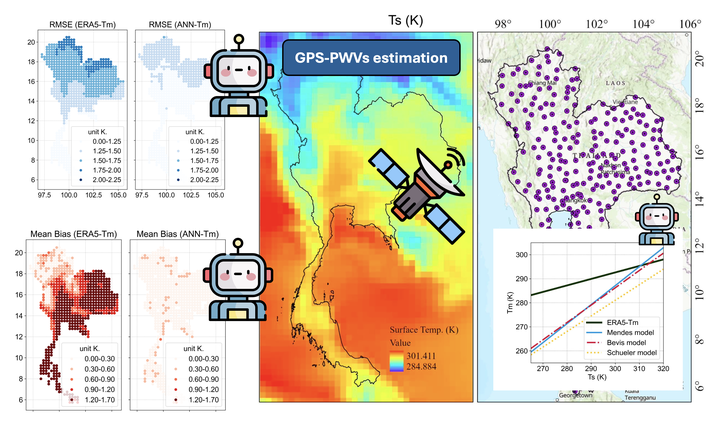Investigating the use of deep learning-derived weighted mean temperature for GPS-PWVs estimation

Abstract
GNSS data offers a reliable alternative for estimating Precipitable Water Vapor (PWV), but accurate GPS-PWV determination in tropical climates requires weighted mean temperature (Tm). With traditional measurement methods often unavailable in Thailand, and existing empirical models showing low accuracy, we propose a deep learning approach. Our Bidirectional Learning with Attention (BLA) model incorporates GRUs and an attention mechanism for Tm modeling. Trained on ERA5 data (2017-2021) and evaluated on 2022 data, BLA-Tm achieved 76% improvement over conventional models, reducing biases significantly. Validation with 280 GNSS stations confirmed BLA-Tm’s superior accuracy in GPS-PWV estimation.
Type
Publication
In Journal of Spatial Science (Taylor & Francis)
